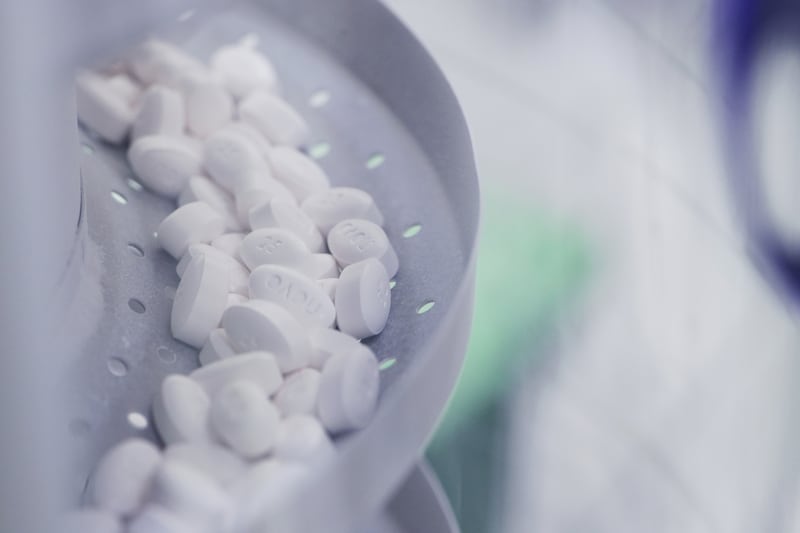Anita Ikharo’s signing during the summer to the US label Fader, home to artists such as Clairo and Matt and Kim, was another landmark for a musician who is evolving in both genre and craft.
The emerging Dubliner, who records and performs as Efé, released Table for Two, a track with shades of Beach House and SZA, in 2020; two years later she released her Vitamin C EP. Then, this year, a switch-up. Her track Truth Truth announced a new direction. Soaked in lo-fi throwback indie, it’s a song that’s almost impossible not to return to after the first play. It makes space for guitars to soar.
The twentysomething is learning to navigate what it means to be signed to a label. “You have to take other people’s opinions on board,” she says. “I was doing everything by myself and thinking of the next moves by myself. So it’s really helpful, actually, and I feel lucky in the label that I’m on, where they do give me a lot of freedom, and I do have final say on what’s important.”
Efé, who creates intriguing visual worlds around her music, would sing at home as an eight- or nine-year-old; then she entered talent competitions at her schools, St Mary’s in Neilstown and Collinstown Park Community College in Clondalkin. Her song of choice was Rihanna’s Take a Bow.
READ MORE
She began “making rap-music videos just for fun with my friends ... From there I was just trying to make my own music. I was taking YouTube beats and making my own songs. I was really influenced by the bedroom-pop scene at the time, around 2017 and 2018. I met a friend, Hansel, who helped me produce my first EP.” That release, What Should We Do This Summer? from 2020, did well, she says. “It brought me crazy opportunities. I’ve met so many people.”
I’ve always said that the reason I even wanted to make music in the first place was for music videos
Bedroom pop, the fuzzy, introspective sound that captured audiences (and algorithms), appealed to Efé not just as a genre but also as a visual mood. “It was almost the whole ethos of it,” she says, “the imperfectness. It’s a very DIY kind of aesthetic. It made it seem like you could do it yourself. I definitely gravitated to that.”
As her songwriting progressed she became more influenced by rock music, especially The Juliana Hatfield Three and No Doubt. “In earlier projects I was scared to go full force with the rock sound, but this year I thought, let me just do it. It has been rewarding.”
Efé’s music is effortlessly nostalgic, pulling on indie-tinged memories of the late 1990s and early 2000s. That first EP represented “this coming-of-age moment in time. So, naturally, I think people would think of it as a nostalgic feeling.” At that point it was unintentional, she says, “but now, with the rock and 2000s feel to my songs, it makes sense why people would think of that as nostalgic”.
What are her ideal songwriting conditions? “Number one, I need to be really bored,” Efé says. “Or listening to music that inspires me, or sometimes even watching a documentary of an artist I love, and seeing their process. That’s a recipe for me to create music I love. I tend to love writing with my friends as well, especially John Mullarkey.”

She hadn’t expected to sign to a US label. “Because I’m an Irish artist, I think the closest opportunity for me would be with UK labels. So it was quite surprising when [Fader] reached out. I don’t know how they found me … When I look at my [streaming] statistics, it’s a lot from the US. Surprisingly, Ireland is maybe third – which is, like, ‘Damn, I want Ireland to be at the top!’ But it’s cool to know that it’s reaching beyond my home.”
For Efé, her creativity is about more than the music itself. “I’ve always said that the reason I even wanted to make music in the first place was for music videos,” she says. “I feel like it makes it all complete. When I think of the visual world now, the video aesthetic, to me it’s artistry. Music is one part of the artistry. I want to make an entire world around something, even if it’s just one song. I always want it to feel like it’s its own thing, and for it to have its own identity … I want that to be encapsulated within the song.”






















